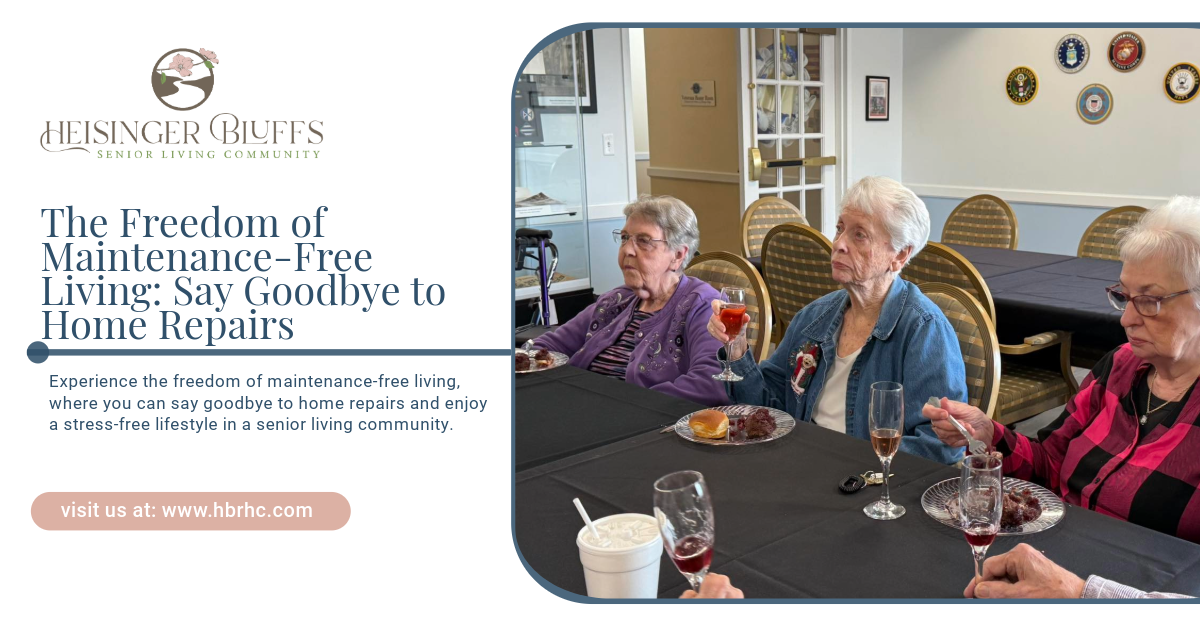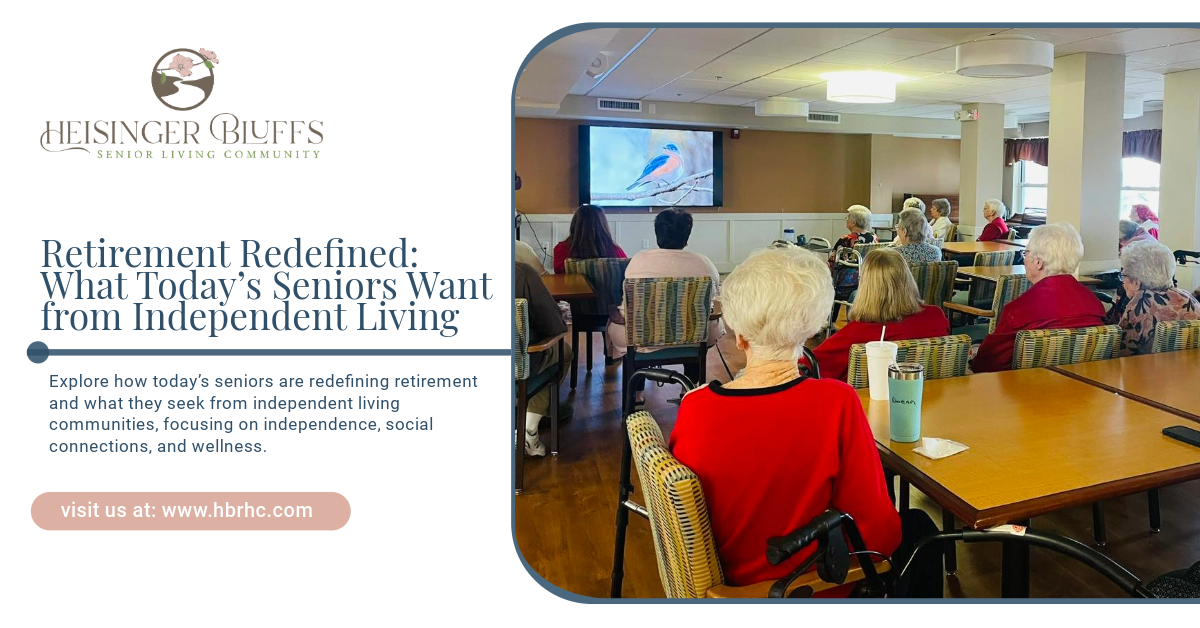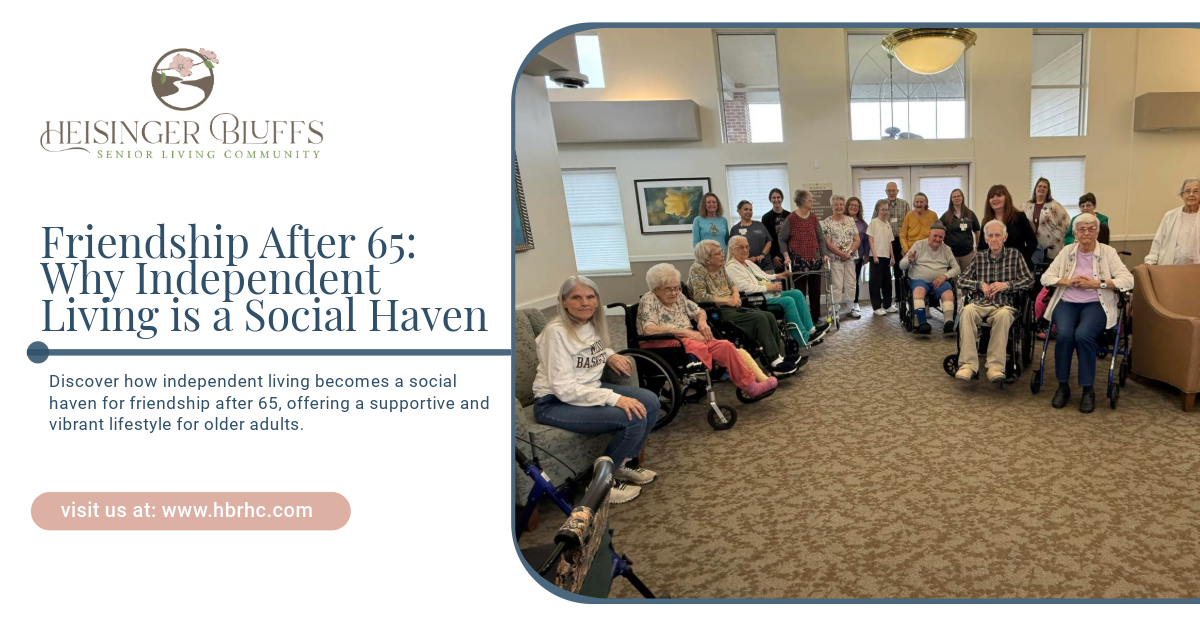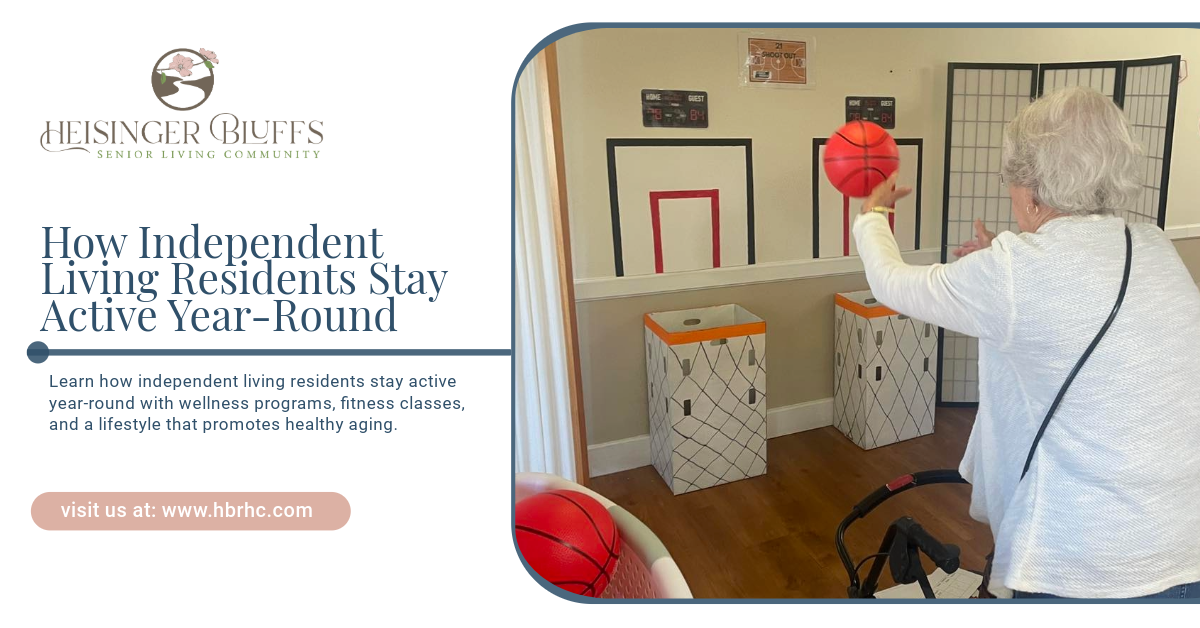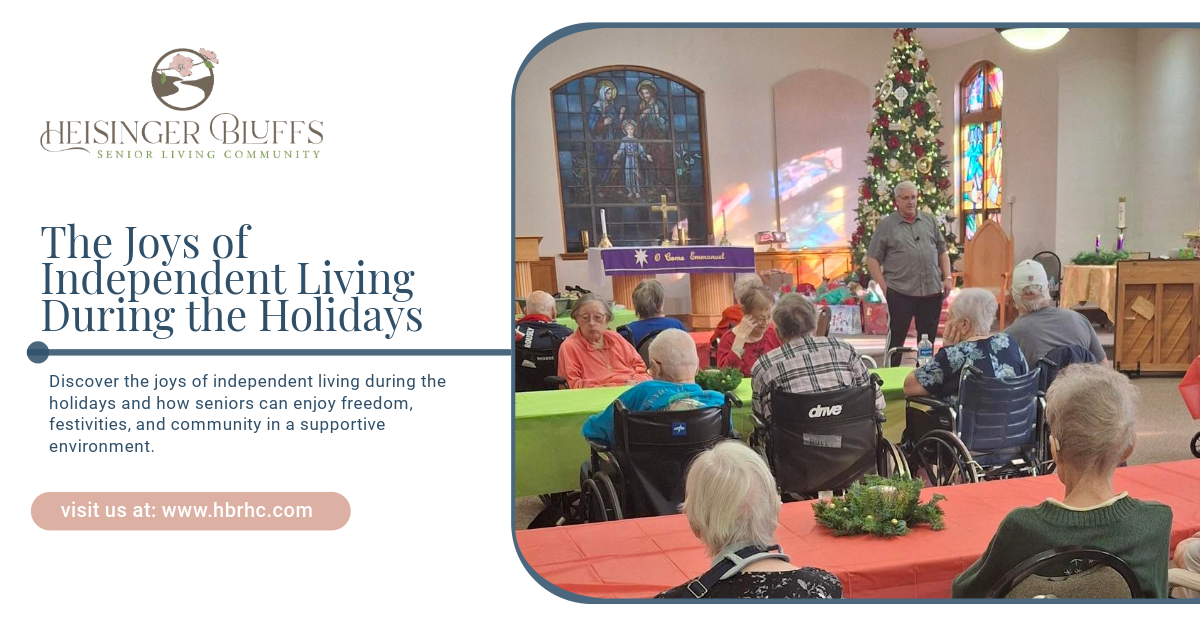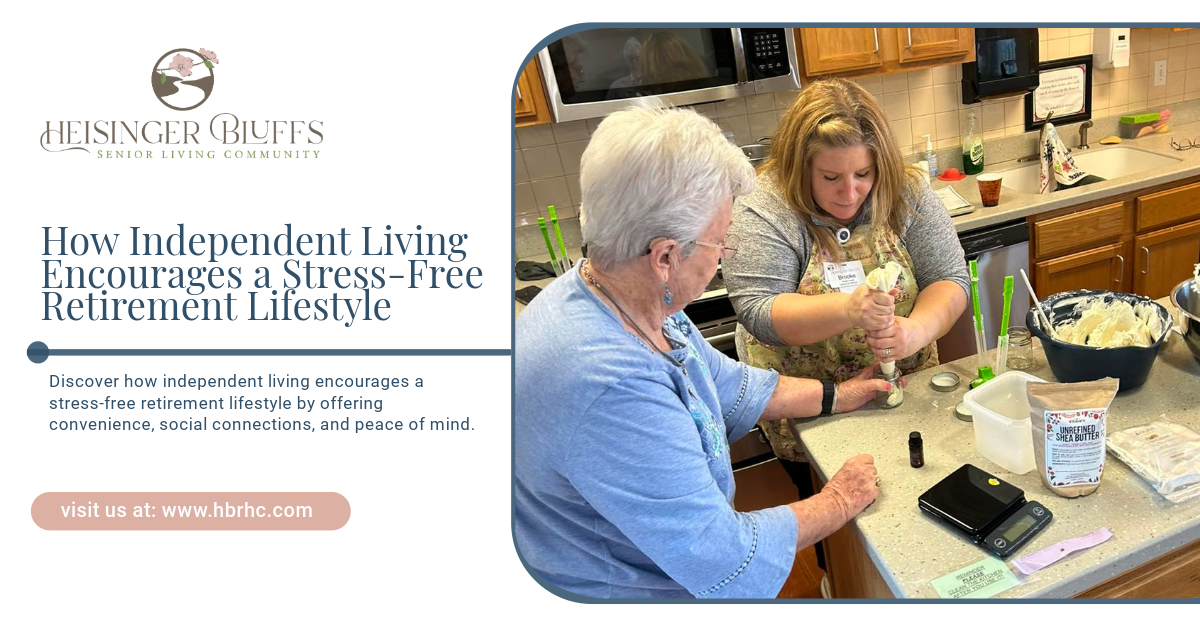Get in touch
A Day to Remember: President George W. Bush's Visit to Heisinger Bluffs Senior Living Community in Jefferson City Missouri
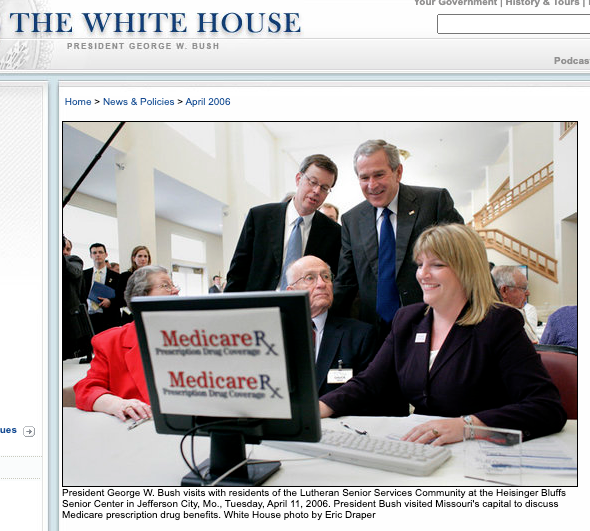
On a sunny April day in 2006, The Heisinger Bluffs Senior Living Community in Jefferson City, Missouri, formerly known as St. Joseph's Bluffs and St. Joseph's Neighborhood, experienced a momentous event that would forever be etched in its history. President George W. Bush, the 43rd President of the United States, paid a visit to this charming senior living community, leaving behind memories that continue to warm the hearts of residents and staff.
A Presidential Briefing in Jefferson City, MO: President George W. Bush's Visit to Heisinger Bluffs
The day began with President Bush receiving his usual briefing before departing for Jefferson City, Missouri. However, it was no ordinary day for Heisinger Bluffs, a senior living community in Jefferson City that boasts nearly 200 residents and is renowned as the only continuing care retirement community in the area. The staff had been diligently preparing for this exceptional visit, as it involved discussions on a topic of great significance – Medicare prescription drug benefits.
An Informed Community at Heisinger Bluffs
The Heisinger Bluffs staff had actively engaged in several informational sessions and seminars concerning the prescription drug benefit in the lead-up to the President's visit. The Centers for Medicare and Medicaid Services had chosen Heisinger Bluffs as the venue for a prescription drug plan enrollment session with 22 seniors. The dining room was set to host this crucial event, and news outlets were eager to capture the moment.
Presidential Connection in Jefferson City, Missouri: A Day to Cherish at Heisinger Bluffs
Upon arrival, President Bush was welcomed by the excited residents and staff of Heisinger Bluffs in Jefferson City, Missouri. His warm demeanor and genuine interest in the seniors quickly put everyone at ease. The President began interacting with the seniors participating in the enrollment session, sharing smiles, stories, and a palpable sense of camaraderie.
A Day to Cherish: For the seniors at Heisinger Bluffs
For the seniors at Heisinger Bluffs, this day was nothing short of extraordinary. They had the opportunity to discuss their healthcare concerns directly with the President of the United States. It was a chance to express their thoughts and ask questions about the Medicare prescription drug benefits.
Pool Coverage and Lasting Impression in Jefferson City, MO
As the President conversed with the seniors, the event garnered widespread media attention. News outlets provided extensive coverage of this historic visit, capturing the essence of President Bush's meaningful interactions with the residents of Heisinger Bluffs.
A Lasting Impression in Jefferson City, Missouri:
President Bush left an indelible mark on the Heisinger Bluffs community that day. His visit was a testament to his commitment to senior citizens and their healthcare needs. It showcased the importance of open dialogue and engagement between elected leaders and the elderly population.
The memories of that sunny April day continue to bring smiles to the faces of Heisinger Bluffs' residents and staff. President George W. Bush's visit remains a cherished chapter in the community's history, reminding everyone of the significance of connecting with and supporting our seniors.
As we look back on this remarkable day, we celebrate the enduring spirit of Heisinger Bluffs and the enduring legacy of President George W. Bush's commitment to America's seniors.
President George W. Bush's Vision for Medicare Prescription Drug Benefit in Jefferson City, MO
President George W. Bush's visit to Jefferson City, Missouri, on April 11, 2006, was part of his administration's continued efforts to promote and educate the American public about the Medicare prescription drug benefit program. This program aimed to bring much-needed relief to seniors who were struggling with the high costs of prescription medications.
A Program with a Human Touch: Medicare Prescription Drug Benefit in Jefferson City
During his visit, President Bush emphasized the importance of providing seniors with choices when it came to their healthcare. The Medicare prescription drug benefit program was designed to offer seniors a variety of options, allowing them to select a plan that best suited their individual needs. This approach was a significant departure from a one-size-fits-all approach and aimed to empower seniors to make informed decisions about their healthcare.
Reaching Out to Seniors: Medicare Prescription Drug Benefit Outreach in Jefferson City, MO
One of the challenges of implementing this program was reaching out to seniors and ensuring they were aware of the benefits it offered. To address this, the government set up various channels for information dissemination. The 1-800-MEDICARE hotline was established to provide personalized assistance, and the Medicare.gov website became a valuable resource for seniors and their families to explore their options.
However, the government recognized that not everyone had access to or was comfortable using technology. Therefore, community events and grassroots efforts became essential in educating seniors about the Medicare prescription drug benefit program. Organizations, including churches, community centers, and advocacy groups, played a pivotal role in helping seniors navigate the complexities of the program.
Real Stories of Savings and Relief: Medicare Prescription Drug Benefit in Action in Jefferson City
President Bush invited several individuals to share their personal experiences with the program, illustrating how it had positively impacted their lives. Their stories painted a vivid picture of the financial burden that high drug costs had placed on seniors before the program's implementation.
For example, Linda Detring, who worked in the healthcare industry and was computer-savvy, emphasized the importance of educating seniors about the program's benefits. She highlighted how even someone well-versed in healthcare found the program beneficial for her own family.
Jodie Baker, a pharmacist, provided valuable insight into the significance of the program for healthcare professionals. She shared heartwrenching stories of patients who had to choose between essential medications and basic necessities. The program had made a tangible difference by lowering the cost of medications and improving patients' overall health.
Agriculture and Community Ties in Jefferson City, MO
The event also highlighted the deep ties between agriculture and community in rural areas. Attendees like Jerry Sooter, a retired funeral director from Jefferson City, who continued to live on his family's dairy farm, reinforced the importance of access to affordable healthcare in rural America.
He recounted how his monthly drug expenses saw a significant reduction of 65 percent after enrolling in the Medicare benefit program. His enrollment process took place online, while others in attendance mentioned their enrollment via insurance agents or by utilizing a toll-free government assistance hotline.
Sooter expressed, "I found it remarkably straightforward."
Another resident of Jefferson City, Helen Robinette, detailed her own experience. Before joining the Medicare drug plan, she grappled with prescription drug costs that amounted to $300 each month. Today, her monthly expenses have dwindled to less than $100, and the asthma inhaler, once priced at $102, now sets her back a mere $5.
"It has truly been a lifesaver," she remarked.
The audience, comprising several hundred individuals, predominantly consisted of Bush supporters who had secured tickets through various avenues, including the Republican party, the chamber of commerce, or a Lutheran senior's home that had the privilege of hosting Bush earlier in the day.
In response to these experiences, both McCaskill and Democratic Rep. Ike Skelton, representing Jefferson City in his district, seized the opportunity of Bush's visit to advocate for an extension of the enrollment deadline. McCaskill proposed extending the open enrollment period until the close of 2006.
The Low-Income Benefit: Medicare Prescription Drug Benefit in Jefferson City
One critical aspect of the program was the low-income benefit. It aimed to provide additional assistance to seniors with limited incomes who were often the most vulnerable. This benefit ensured that those living month-to-month on a fixed income could access affordable prescription medications.
The Success of the Program: Medicare Prescription Drug Benefit in Jefferson City, Missouri
President Bush celebrated the success of the Medicare prescription drug benefit program, highlighting that it had exceeded expectations in terms of enrollment and cost savings. Millions of seniors had already signed up, and the program's premiums had decreased, making it even more accessible.
In Conclusion: Promoting Healthcare Choices for Seniors in Jefferson City, MO
In closing, the President emphasized the importance of this program for seniors and encouraged all eligible individuals to explore their options before the enrollment deadline. He applauded the efforts of organizations, healthcare professionals, and community leaders in supporting seniors through this vital initiative, which aimed to provide them with the best possible healthcare in their golden years.
Bush marked his place in history as the fourth sitting president to grace Missouri's capital with his presence. The most recent prior visit occurred in the year 2000 when President Bill Clinton attended the funeral of Governor Mel Carnahan. Adding to the presidential legacy in Missouri, the state's own Harry Truman made multiple stops during his presidential tenure. Furthermore, the historical records reveal that President William Howard Taft made an appearance in Jefferson City back in 1911, engaging in a memorable round of golf. These remarkable events were recounted by Gary Kremer, the Executive Director of the State Historical Society of Missouri.
Sources:
https://www.foxnews.com/story/bush-promotes-medicare-prescription-drug-plan-in-missouri
https://georgewbush-whitehouse.archives.gov/news/releases/2006/04/20060411-1.html
https://georgewbush-whitehouse.archives.gov/news/releases/2006/04/20060411-5.html
Image Credits:
Wally Gobetz - https://www.flickr.com/photos/wallyg/5153766481/



Want to know more?
We will get back to you as soon as possible.
Please try again later.
You May Also Like To Read
Heisinger Bluff’s Life Plan Community is here to make your senior years safe, stimulating and enjoyable so that you can savor the present, knowing the future will be taken care of.
QUICK LINKS
CONTACT
©2024. Heisinger Bluffs. All rights reserved.


